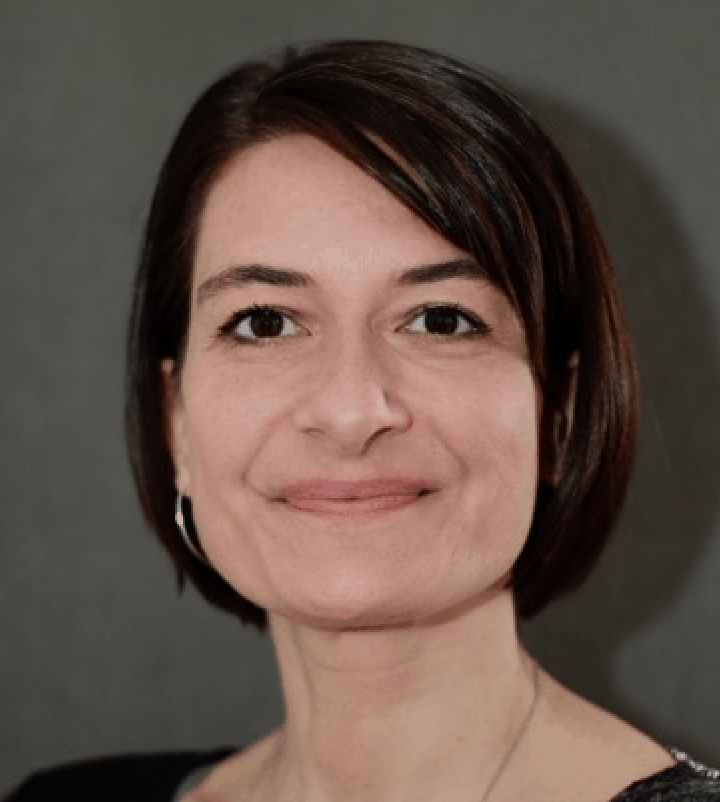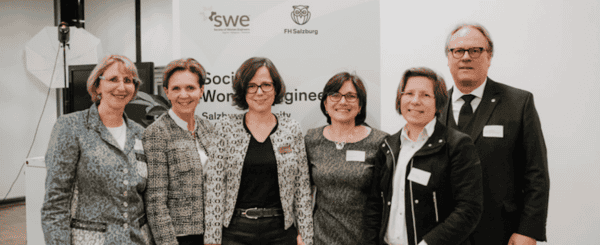In this Global STEM Perspectives series, our SWE Content Curators work group will bring you experiences, success stories and perspectives from different women in different regions. In this article we’re highlighting Luisa Cristini, Science Manager at the Alfred Wegener Institute Helmholtz Center for Polar and Marine Research, a polar research institute based in Bremerhaven, Germany. Read on to hear Luisa’s insight and advice about leadership in the STEM field.
Science is made of projects. However scientific excellence and good organisational skills are not enough to ensure your project is successful and the funding agency happy. What else do you need?
Science advances through projects. From doctoral works involving a handful of people to large field campaigns involving hundreds, scientific research is full of examples of projects. In the geosciences —where I’ve worked most of my career— scientific collaborations are often large, interdisciplinary and international, such as EU-funded research and infrastructure projects but also oceanographic cruises, sediment or ice drilling projects, large model inter-comparison projects, and involve not only research scientists but also a wide range of other personnel in logistics, IT, communication, data management and other technical roles. For these kinds of projects requiring millions of Euros in support, funding agencies usually request more than scientific results. Regular technical reports, societal impact assessments, policy advice, stakeholder engagement, exploitable results (including innovation potential and data), training and knowledge transfer are just a few examples of the additional information and results project leaders need to provide on top of the scientific work. Clearly, scientific excellence is not enough to succeed. And a single person, the lead scientist, is often not equipped with all the required expertise with the risk that their lack of project management skills jeopardises the success of the project.
Over the past 10-15 years academia slowly recognised the need to employ project management professionals to support scientists from proposals to reporting throughout the project lifetime. When the project is big enough and its budget allows, a project coordination team is set up with a science coordinator (the lead scientist), a project manager, and a finance and administrative manager. The project manager, sometimes called by other titles such as science or research manager, director of operations, or similar, is the person in charge of making sure that the project operations run smoothly and according to the funding agencies’ requirements. S/He is responsible for the project schedule, documentation and communications and is involved in all project processes and phases. In addition to the role in the project as a whole, s/he might also lead some parts of the project work, especially those that involve communication, data, impact assessment, clustering with other projects, or strategy. Because of the variety of possible responsibilities, many project managers specialise in a specific area, such as the project planning and grant proposal preparations, or the implementation and monitoring, or the project evaluation, stakeholder and public engagement, ethics and policy, education and training, data governance, innovation and IPR, and so on.
So what are the skills that the science manager needs to have to be able to fulfil this role —along with its many challenges?
Usually, the science manager has a scientific background, often in the same field of research of the research project. So for example for a climate modelling project, you might need a project manager with a background in a numerical science or Earth science (or both). This is needed to be able to understand the big picture of the project and to apply the scientific approach.
The science manager needs to have also the technical skills relevant for the project, so for an operational oceanography project, for example, they need to have some expertise in oceanographic instrumentation or lab analysis to be able to evaluate the technical work happening in the project.
Next, training and experience in project management are critical but often overlooked in academia. Science managers cannot rely solely on their good organisational skills when millions of Euros are at stake and a thorough training or —better— a professional certification is a great advantage. In my opinion, the most relevant project management knowledge areas where science managers need to have strong skills are:
- Change management, and the ability to apply agile methodologies to adapt to changing research conditions (e.g., a field trip cancelled, a lab instrument not working, results not as expected);
- Time/schedule management, and the ability to schedule tasks and work to meet the funder’s deadlines;
- Cost/budget management, and the ability to have an overview of all the project costs (the details are for the finance manager) to budget personnel, activities and events;
- Team management, and the ability to recruit/bring together the right team for the job;
- Quality management, and the ability to evaluate the project work with respect to the funder’s standards and requirements;
- Communication skills, as the project manager is the first point of contact for the project and needs to be able to communicate effectively with the project team and the outside world;
- Risk management, and the ability to prepare in advance for all possible scenarios; and
- Stakeholder management, to manage the expectations of the project team and key stakeholders including the funding agencies.
Interpersonal skills are also very important for a science manager as they need to interact with a diverse set of people in various research institutions. Conflict management and negotiation/mediation are essential to glue the project team whose members might have different research interests and agendas.
Analysis and synthesis skills are among the most valuable for a science manager (project integration management) as s/he need to be able to bring all the pieces of the project puzzle together for the funders and key stakeholders, and compile information from different groups who might speak different scientific languages. For example in polar sciences, projects are very interdisciplinary and might involve physicists, biologists, geologists and so on who all have different scientific cultures and work mindsets.
A science manager needs to have also strategic skills and the ability to see how the research project fits in the organisation’s vision. S/He has to link the project with the organisation’s mission and keep this link alive and strong supporting the scientific coordinator in finding possible ways to sustain the funding for the research, and advocating for the project inside and outside the organisation.
The project manager supports the project coordinator in managing the scope of the project, therefore s/he has to be result-oriented and have the ability to keep her/his eyes on the outcomes. S/He will be able to (fore)see the impact of the project and its potential for innovation, which also requires creativity.
The project manager needs to have strong organisational skills as s/he might need to coordinate the project work on different levels such as their own contribution to the project (e.g., leading some deliverables), team contribution (e.g., manage a team working on a subproject), while also organising the whole project schedule and keeping track of milestones and results.
Finally, as with everything dealing with science, the project manager needs to keep an open mind. The project might not bring the expected results or the research might open more questions than provide answers so the project manager needs to be open to criticism and the possibility of errors.
In the 10+ years that I’ve spent managing research projects and coordinating scientific activities, I’ve had lots of moments when I thought that “the job was too much for me” and when I felt I didn’t have the right skills for a particular project. Now I think that those were wonderful opportunities to learn and I had several occasions when I was put in charge of tasks I had no idea how to carry out so I had to learn the hard way. But it was worth it! I have learned and experienced so much that now I feel that my expertise is very comprehensive. What I also love about this job is the opportunity to see the big picture instead of focusing on little a piece of research (as I was doing during my years as a researcher in climate sciences) which is very motivating. Working with many different people across all sorts of disciplines in the natural and social sciences has also allowed me to learn that science is a team effort and we’re all collaborating to understand how the world works. Feeling that my work has a concrete impact and the science that I manage can inform policies and influence our very lives is exciting!
Related content:
- How Can Project Management Help Me? Is It Worth It?
- Global STEM Perspectives: Tripti Singh – Moixa Technology, London
- Global STEM Perspectives: Kavitha Gunasekaran – Hindustan Aeronautics Limited, India
- Women Engineers Work to Restore the Soil, Water, and Skies
Author
-

Luisa Cristini is a R&D project management professional who helps research organisations fulfill their mission through the coordination of projects and programmes. Currently Luisa works at the Alfred Wegener Institute Helmholtz Center for Polar and Marine Research, a polar research institute based in Bremerhaven, Germany, where she manages multimillion-dollar collaborations in Germany and Europe focusing on climate sciences. Luisa has a background in physics and climate sciences complemented by a professional project management certification and over a decade experience in managing and contributing to research projects on a variety of topics including disaster management, operational oceanography, climate modelling, and software development.






